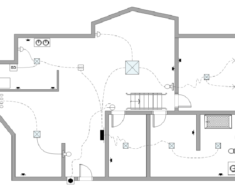
Care homes have struggled for many years with their reputation. As a result, the idea of moving a loved one into a care home can be met with great resistance. The reality, however, is that the majority of care homes are providing impressive levels of care with very happy residents just like the Water Gardens retirement village. The idea that a few bad apples spoil the bunch doesn’t make sense in this day and age, when you are better equipped to sift the sub-par from the great.
Online reviews, word of mouth and a general increase in industry standards has led to vast improvements in care homes. Companies such as Westgate Healthcare are the backbone of elderly care in a society that lacks government support.
Whilst there are too many benefits to count, it’s worth going over the core benefits to help give courage to the decision of using a residential care home.
Keeping Active
When you stop using your muscles, they fade away. The same goes for the brain as it needs to be stimulated in order for it to function at its full capacity. The greatest benefit that a care home offers is the wide range of activities for residents, day in and day out. The number of tasks, games and hobbies that are available is not possible to replicate without such infrastructure, workers and co-residents. Studies show that cognitive decline is proven to be delayed in nursing home residents due to mentally and physically stimulating activities. This could be anything from local walks to baking.
Safety
Of course the other key element here is that care is on hand 24/7. Both residents and their families can rest assured that there are always staff in close proximity to help out. This is the issue with trying to care for a loved one yourself; often it ends up being an all-consuming and difficult to reach a state of constant care, which is particularly important for those suffering with dementia who may be a hazard to themselves.
Socialising
Another reality of aging and lacking in mobility is that it results in a deterioration of one’s social life. Care homes are essentially campuses of similarly aged residents with much in common. This can not only mitigate the reality of the lack of socialising, but also the fear of it, which often induces anxiety.
Eating
A common worry when we see our loved ones get more vulnerable is that they will stop eating properly. Care homes provide regular, cooked meals to ensure that residents are not lacking calories or nutrients in their diet. This is actually a big factor in mental health, as there’s a cyclical relationship of not eating and feeling depressed and/or frail, which can lead to a further demotivation to cook and eat. Care homes are a great way to stay on top of this.
Of course, there are plenty of other benefits to care homes. The discarding of personal chores as well as keeping on top of medication are some of the ways that care homes can really improve the standards and safety of an elderly person’s life. The resistance towards it is often predicated on historical stigma and bad PR that can hurt a vulnerable person more than it can help them.









































